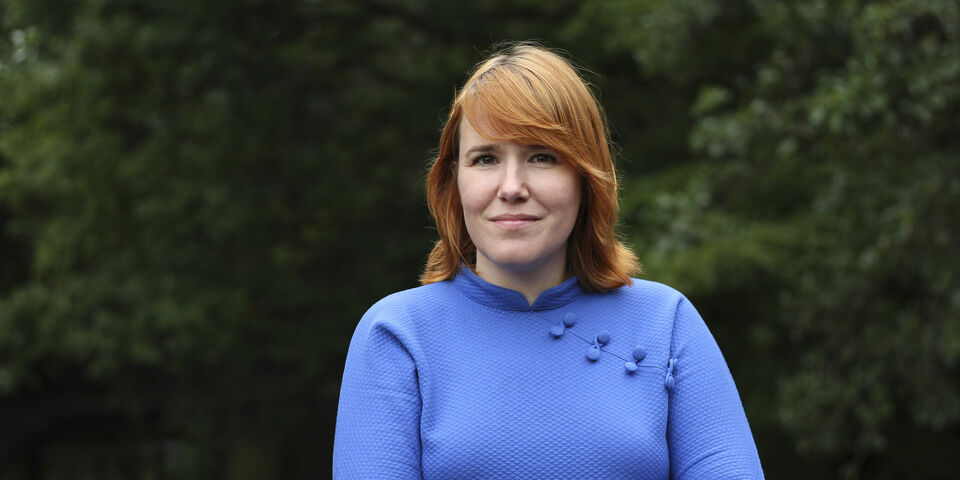Ionica Smeets is building a new centre for science communication ‘from scratch’
“The dialogue between science and society could be so much better”, says Professor of Science Communication Ionica Smeets. The Ministry of Education has asked her to help found a national centre for science communication.
For some years now, researchers have been judged not just by the number of publications they have to their name. Universities want to change their assessment criteria to include things like teaching expertise, social contributions and how they present their research.
The Ministry of Education is happy to encourage this, which is why it’s investing in a new centre for science communication. The project’s ‘quartermasters’ are professor of Science Communication, mathematician and writer Ionica Smeets and Alex Verkade, who is head of External Relations at SIA, the Dutch Research Council branch that subsidises practice-oriented higher education research.
Is setting up a centre like this still a challenge for an expert at science communication like yourself?
“It’s quite exciting. We’re basically starting from scratch, and we’re open to collaborations. With an annual grant of one million euros for the next ten years, we can begin to make a structural difference for scientists, but it’s still a big challenge. The field is so broad: it doesn’t just comprise higher education institutions, but also science museums and freelancers working in science communication – across all kinds of subjects and in all kinds of forms. Deciding what kind of support we should offer where will be a big challenge.”
Where do you see room for improvement when it comes to science communication in the Netherlands?
“You see a lot of projects where people haven’t given much thought to the goal of their communications. Even though they want to reach as many people as possible, they usually end up reaching just a few of their fellow researchers. And sometimes an unnecessary amount of money is put into an app that doesn’t resonate with the target audience at all. The centre could offer advice on those kinds of issues.”
Do you think scientists in the Netherlands struggle to explain their work to a wider audience?
“Well, there are some scientists who are good at that, but those tend to be lone wolves who figure everything out on their own. A centre can offer broader support and also provide research-based advice on what does and doesn’t work in terms of communication. The dialogue between science and society could be so much better.”
Alex Verkade focuses more on practice-based research. Is there also a need for support in that area?
“My perception is that universities of applied sciences believe that practice-based research should be presented in the same way as university research. But that isn’t necessary at all. Researchers at universities of applied sciences have close ties to the rest of society and work together with all kinds of partners. They might have a better understanding of how to talk about their work to a wide range of audiences.”
The Ministry of Education writes that a blueprint for the new centre will be ready next spring. What will that blueprint look like?
“We’ll get started on the first draft in October, and then by the end of March there will be a plan. If everything’s approved, the centre could begin in September. But right now we still have a blank slate – we don’t even know yet whether the centre will have permanent staff. We admire the science communication centres in Germany and England, which show that a centre like this can play an important role.”
Professor of science communication
In December last year, science journalist and physicist Margriet van der Heijden was installed at the Department of Applied Physics as a professor by special appointment of science communication. On the TU/e website, she talks about her plans and why good science communication is so important: “Mutual conversations are key.” She also talks about the questions she wants to explore in the Sound of Science podcast.


Discussion